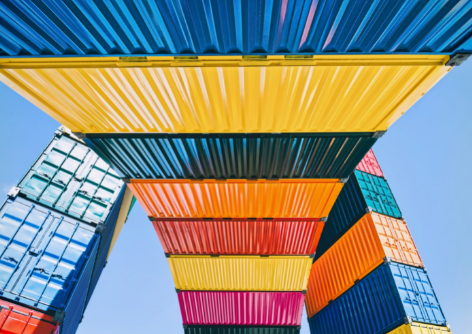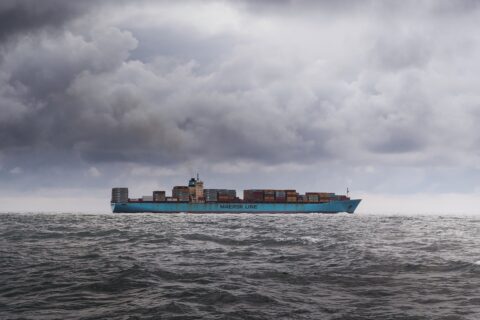Transporters know that in ocean logistics, unexpected events can occur, and goods can be damaged, lost, or stolen. However, what they most commonly do is provide a contract of carriage which assumes the shipper will pay for all damages to cargo; however, this assumption is not always true because the freight liability does not protect against harsh economic losses such as those caused by theft or damage. Even if you have insurance on your shipment with Freight Forwarding Experts (FFE), it is still important to understand where coverage ends and why it will not replace your value entirely when a loss occurs!

Ocean container shipments are subject to freight liability so consignees with a contract will still want cargo insurance. Because the carrier is not required to reimburse your losses if you cannot prove negligence, it’s important that you have some form of coverage for in case of natural disasters or sinking ships.
The rules of liability for freight have been established in the Hague agreements, a set of treaties signed in 1926. The agreement has evolved to include or refer to different reference points such as the 1968 revision of the former, Rotterdam and Hamburg which were signed off on 2009. These rules do however cover generally similar terms with regards to responsibilities when it comes down to signing contracts and transportations; they are dependent upon countries’ individual state laws that govern how these targets should be met.
The three rules also have similar reimbursement values in case of a liability claim, as they are all based on weight. Covering your cargo with additional insurance is vital because Ocean Freight’s liability terms feature the lowest weight-to-valuation ratio of any other transport method. For example, if you lost 2,850 kg worth US$ 70,000 under the Hague Visby rule and managed to prove it was indeed their fault due to something that happened during transportation which led to an accident or miss delivery or damage – this would be valued at 8% (US$ 8K) while Air Freight liabilities comes out at 10%, Road freight damages would come out 12%.
Top 5 Reasons Why You Need A Cargo Insurance Policy:
1. If you own the cargo while it is in transit you are at risk.
If you are an exporter your shipment is worth something. If it wasn’t worth anything you wouldn’t be able to sell it. Whether your cargo is valued at $8,000USD or $8,000,000USD, that is your direct loss if your cargo is destroyed, lost, stolen, or you get bitten by ‘General Average’.
2. Even if your cargo holds limited actual value, the whole of your expenses add up.
There are quite a few instances cargo is not highly valued in itself. Some scrap, raw materials, and earthen products such as minerals or clay, among others, are just not worth a large amount of money. It is also a fact total transport costs can add up to a dollar figure that will get your attention. Depending on the transportation origin and destination the cost of getting your export shipment to the buyer’s port can be a larger amount of money than the cost of the actual freight. When the transport costs and the freight value are added up, it’s not an insignificant number anymore. For this reason it is most often suggest CIF (Cost, Insurance, Freight) + 10% as the formula to use when insuring your shipment. It’s the industry standard for a good reason. If you ship a container to your buyer and it is lost in route while you still own it, you will likely have to ship another container to make good on the shipment that was lost.
3. Ocean carriers limit their liability
The age old phrase ‘you broke it you bought it’ does not apply to ocean carriers. As a matter of fact it doesn’t apply to air carriers, LTL carriers, or even some truckload freight to one degree or another. Even when there is carrier liability it is often cents on the dollar. Ocean carriers go by the Carriage of Goods by Sea Act (COGSA) which limits the carrier to a $500USD limit per package, if not package per shipping unit, as carrier liability. This often translates to $500USD per container even if there is carrier negligence. In some cases you can argue the point your bill of lading states 20 pallets of ‘parts’ and that one pallet is the package.
4. Cargo Insurance is flexible.
Cargo insurance is not one size fits all, or shouldn’t be. Different shippers and their commodities may have different needs. You don’t have to pass on cargo insurance because the ‘standard policy’ doesn’t fit your needs. An exporter selling new machine parts will have different needs than an exporter selling scrap metal. While seawater intrusion would be a concern for the new parts seller, it wouldn’t be for the scrap seller. No one cares if metal scrap gets wet. Why pay for coverage you don’t need? Moreover, an exporter handling four shipments per month will have different best practice transaction needs than a shipper that ships four hundred shipments per month.
5. Cargo insurance can put an ‘extra pair of eyes’ on your shipment.
Any cargo insurance vendor arranging cover and or issuing certificates who is worth their pocket protector should be looking at your shipment. Cargo insurance policies have conditions of insurance. Many of these conditions have the objective to ensure shipment risk is mitigated as much as possible. For instance, when we deal with a shipper we just don’t arrange the insurance. We want to hear about their commodity, the mode of transport, and how it’s packaged. In doing so we are looking out for your risk exposure. You’re shipping Grandma’s china via rail? How is it packaged? You are shipping soybeans in bulk in container internationally, that is a vented container, right? Commodities have vices and modes of transport and packaging have their best practice uses. While it is true most shippers know their commodities and cargo insurance is not a true form of quality control, having one more layer of process looking for specific things doesn’t hurt.
ProConnect Integrated Logistics
If you think freight forwarding, warehousing, custom clearance or local distribution could be helpful and prove to be efficient for your business, talk to us. We help companies across several industries with their logistics needs, including cross-docking, warehousing and freight forwarding. We possess the experience and the expertise required that can help you reduce costs, achieve faster turnaround time, implement more efficiency, and offer strong partnership.
Know more about shipping/ logistics industry by checking out our previous articles on Reverse ETL: What It Is And Why It Works So Well & Shipping Your First Container: An Easy Guide to Getting Started
Still have questions? Looking for a quote? Contact us today.





 APP DOWNLOAD
APP DOWNLOAD